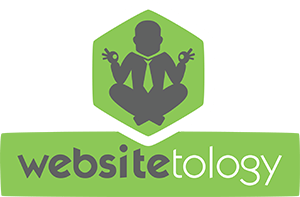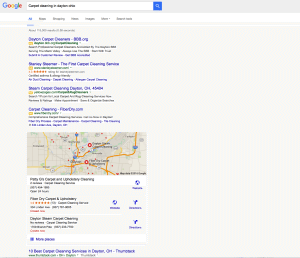We’ve been telling people that WordPress was the number one tool to get to number one with Google- organically, since 2005 when we started our Websitetology Seminar (then called Blogosopher).
We’ve watched as WordPress has taken over the web, for all sizes of business, far eclipsing other CMS options like Drupal and Joomla. Now, with their official attendance at the most recent WordCamp US, Alberto Medina a Developer Advocate in the Content Ecosystems Team at Google, explains why Google has joined the WordPress cult:
Why has Google chosen to align with WordPress
The CMS space encompasses an important cross-section of the web; there are a plethora of players out there, and many of them offer pretty cool technologies. In terms of functionality and capabilities WordPress has strong similarities with other CMSes on the market, but arguably there are a few things that set the WordPress ecosystem apart:
- First, is the success of the platform; WordPress accounts for ~59% of the CMS market share, and about ⅓ of web content nowadays is powered by WordPress
- Second, is the large and ever-expanding ecosystem of themes, plugins, hosting providers, developers, consultants, and specialized WordPress experts which all work together on the creation of WordPress-powered content.
- And third, is the WordPress community. The more we get involved with all aspects of the WordPress ecosystem, the more we realize the kindness, diversity, inclusiveness, passion, and effort at every level of the community, bottom up, and top down.
But in essence, the missions of Google and WordPress are naturally aligned. An essential part of Google’s mission is to contribute to the prevalence of a healthy, flourishing, and vibrant web. We are investing significant efforts and resources to help to bring a delightful (i.e. user-friendly, fast, engaging) user experience to all users: everywhere, on every device, and over any connection. Similarly, an essential part of WordPress’s founding mission is democratizing web publishing, which itself implies providing an awesome UX on WordPress-powered sites for all users (content creators, site owners, developers, content consumers). Therefore, by working together we can double down on our efforts and accelerate the success of our overlapping missions.
Source: Google’s Presence at WordCamp US
When you realize some of the most trusted sites in the world like the NY Times are built with WordPress, you start to understand why there isn’t any excuse for you to use dumbed down proprietary sites from SquareSpace, Wix or Weebly.
Anything you can do on any of those sites, you can do in WordPress- with the proper training and assistance. That’s why starting with Websitetology might be your best bet to get online and get seen.
When it comes to getting customers, selling your product or service, or growing your business one thing hasn’t changed: there is no free lunch.
From the outset of “internet marketing” the fantasy of marketers has been that somehow, internet marketing was cheap, free, or easy. Build an email list and blast away. “IT’S FREE” compared to direct mail, or build an online store and never have to pay a salesperson again as the money just keeps rolling in. You get the picture.
The reality is that you still have to spend money to make money, and that someone has to spend the time to put all this in place. The old way was to have a marketing department or hire an ad agency or some combination of the two. You’d buy media from the short list of options: TV, Radio, Print, Direct, Outdoor, the Yellow Pages (remember those) and off you went. Those days are over.
When we first started teaching Websitetology in 2005, it was all about organic search optimization. We were among the first people talking about content marketing, the idea of creating content that would bring your customers to you. Make it good, make it useful and make it accessible.
To Search or not to Search? That is the question.
To this day, I still run into at least ten examples a day of companies that don’t have a clue on how to properly present their products or services online. Today, I was looking for information on an older, but still serviceable video projector. A search of the the product name should have taken me directly to the manufacturers site where I would find the original product specs, the replaceable parts and part numbers, any advertising that went with it, press releases, links to reviews, a community help forum that’s well moderated, and the manuals available as a PDF download for free. I should also find the replacement for it if it’s been discontinued, and information on how and where to buy.
What did I find? Surprise, nothing. A few review sites, with not a lot of content. In 2000, this projector retailed for $15,000. Now, it’s an orphan. The company has not only forgotten its child, but written it out of the will, as in goodwill. Someone who had this product, was pleased with it, has no reason to connect or reconnect with this company and to consider them for a replacement. Could you imagine Harley Davidson giving up on an older bike, or an existing customer? Not on your life.
This is the fundamental of search marketing, driven by good content. Having people looking for your products, your company, your services, yourself, find you and be on your site, not anyone else’s. Your site should be the first (and last place) anyone looks for information about your company or products.
The short answer is, your company has to be at the top of search. It’s not really negotiable. Over 60% of your customers start their purchase decision via search.
To Social, or not to Social? Is that a question?
Social was also supposed to be “free.” If you talk about yourself enough, someone will hear, and access was “FREE.” All of a sudden, everyone was a social media guru.
Just like the Apple Macintosh was supposed to turn us all into publishers, sitting a million monkeys down at typewriters won’t get you “War and Peace” no matter how many bananas you give them.
Social is, and always was supposed to be a 2-way conversation between your company and your community. But, that doesn’t mean success is measured in mentions, or retweets or any other social metric. It’s still measured the old fashioned way, if your cash register is ringing. Social campaigns will never overtake search because Search in and by itself is the first step in an actual decision to buy something. We like to refer to Google as a database of human intentions. If you’re searching, it’s usually followed up by direct interaction. Social media can be consumed passively and disposed of without ever leaving the original platform. That doesn’t put money in the bank, unless it’s the bank of goodwill.
Many “Social Media Gurus” talk about posting calendars and forcing content out at their pace- when in fact this is nothing but noise. As an example- it’s easy to talk about politics right now (it’s an election year) but, remember what you were told about dating- “stay away from politics and religion” because it’s almost always divisive. Social, when done well can contribute to sales quite effectively, but usually, only when the social interaction is taking place at the appropriate time and to the right audience.
Social or Search?
Yes, as in both. However, with proper objectives and reasonable goals in mind. First, always make sure you can and will be found, preferably before anyone else. We learned early the possibility to hijack our competitors customers by just providing better information about our competition than they or Google did. That’s right, why not optimize your site for bringing your competitions customers to your site? Who said the Yellow Pages or Google or anybody else had more of a right to share information than you? Make a well-maintained list of your competition and put it right on your site.
Then, don’t feel bad about jumping into your competitions social conversations about purchase decisions. If they decide to have their conversations with their customers out on the internet, it’s open season to interrupt their sales pitch.
We’ve got a lot more answers on how and what do to get in front of your customers and your competitions customers, but that’s due to our day job as an ad agency that specializes in doing the only two things that truly matter to an advertiser: we create lust and evoke trust, by guiding the conversations into our domain.
If you’d like more information on how this is done, our Websitetology Seminar is a good place to start.
70% of you ignored the first three results on Google, and never looked at the sponsored results in the right hand column.
So, as of Wednesday February 23, 2016, Google decided to do something about that.
Gone is the right hand column in it’s entirety.
Instead of three sponsored links at the top of the page- there are now FOUR.
Then a geographic map- listing Google Local results near you.
Then ten organic results, then three more sponsored search results.
All in the left hand column.
So, this means there are now at least 4 paid results above you- and then, the organic map, then ten results, some of which will almost always be manipulated link farm directories like the Better Business Bureau, Hibu, YP, Angies List, and who knows who else, then, if you are both lucky and good- you.
This means higher bids to be seen for the Search Engine Marketing people to make it into the top 4 positions, and a lot less paid spots on page one.
It also means a lot of white space. The good news, if they are actually searching for your exact business- it will probably show up all by itself on the right.
Time to make sure your Google Local listing is up to date.
Also, since last year, Google will give preference to sites that are both entirely secure (we now offer this as part of our hosting package) and mobile friendly (responsive, or other wise).
Some people speculate that this new Google format is mostly driven by the small screen, guaranteeing that search results, including ads, look the same on mobile as they do on desktop, others, think it’s just a way for Google to maximize revenue. Either way, it’s a big change, and will take some more time to fully understand how this changes your first page results.



